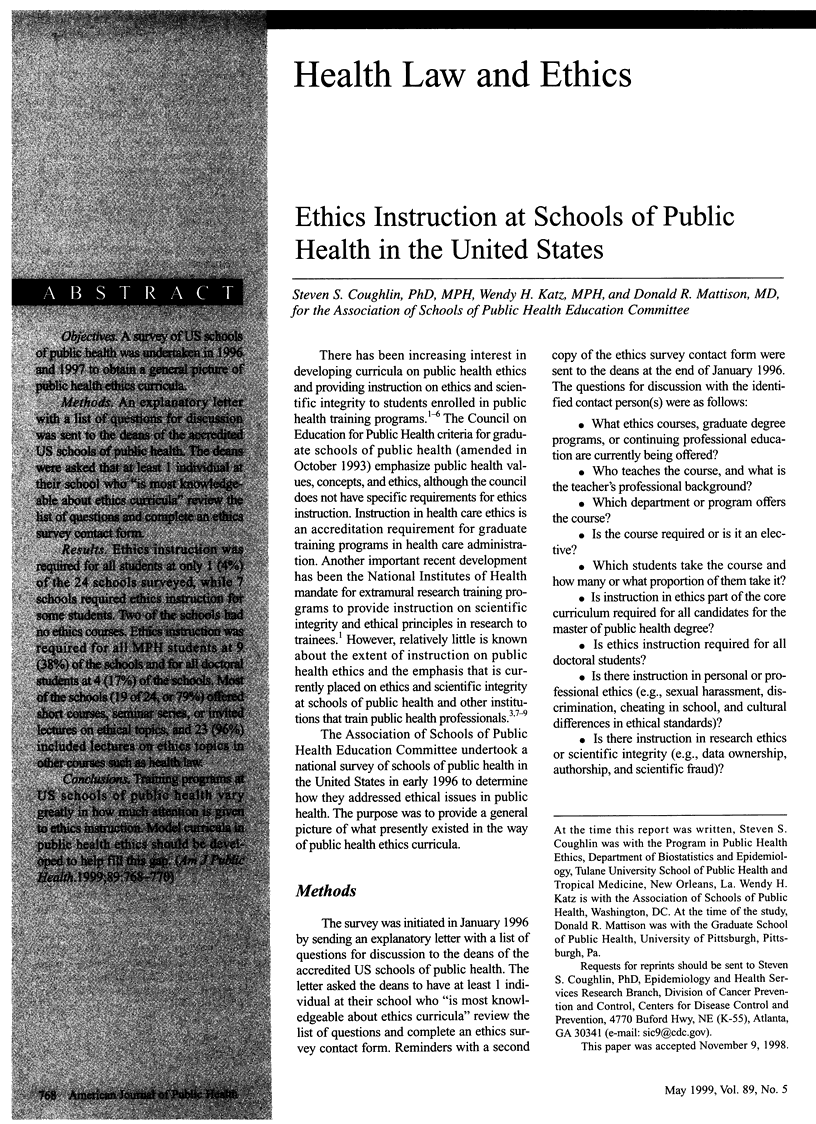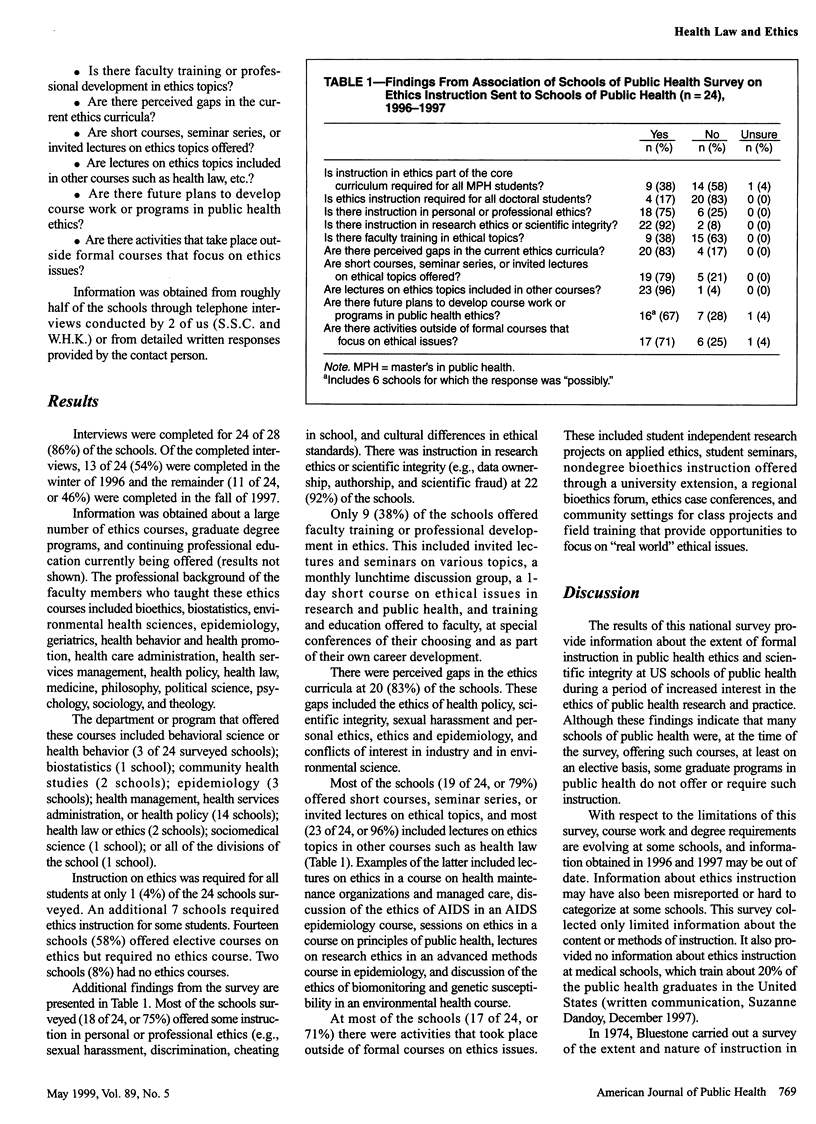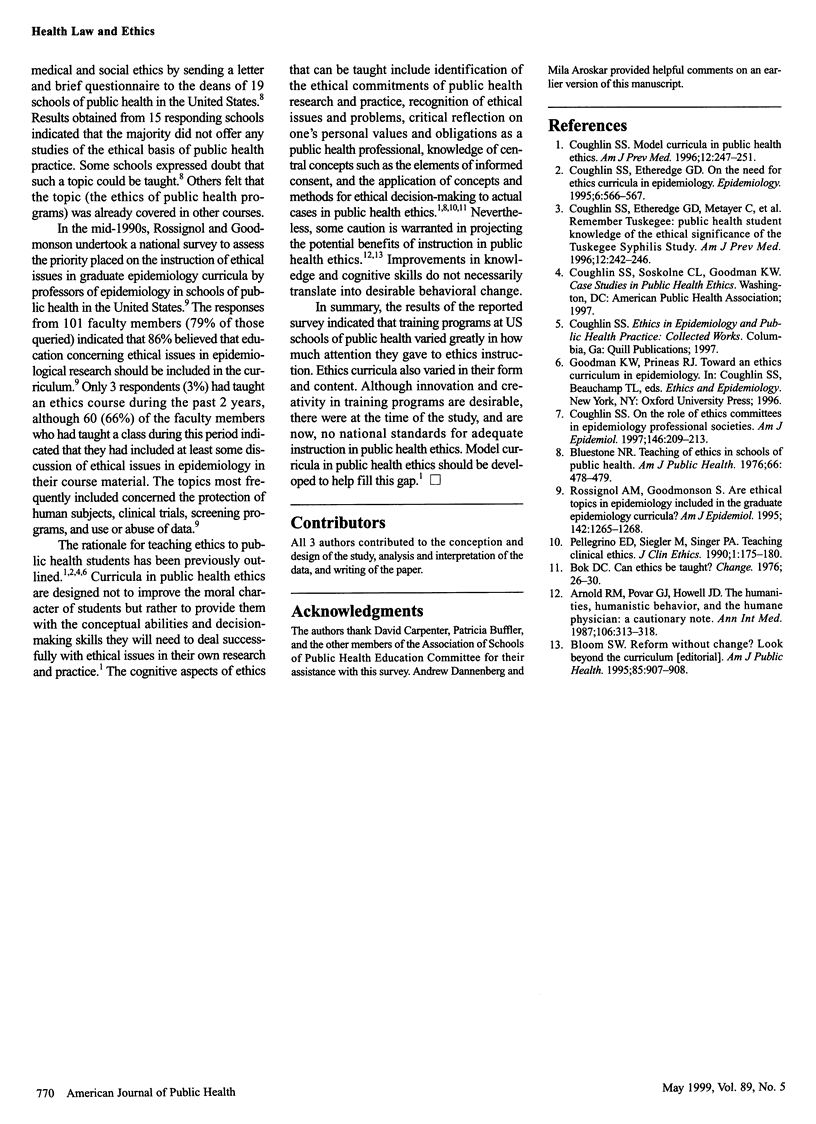Abstract
OBJECTIVES: A survey of US schools of public health was undertaken in 1996 and 1997 to obtain a general picture of public health ethics curricula. METHODS: An explanatory letter with a list of questions for discussion was sent to the deans of the accredited US schools of public health. The deans were asked that at least 1 individual at their school who "is most knowledgeable about ethics curricula" review the list of questions and complete an ethics survey contact form. RESULTS: Ethics instruction was required for all students at only 1 (4%) of the 24 schools surveyed, while 7 schools required ethics instruction for some students. Two of the schools had no ethics courses. Ethics instruction was required for all MPH students at 9 (38%) of the schools and for all doctoral students at 4 (17%) of the schools. Most of the schools (19 of 24, or 79%) offered short courses, seminar series, or invited lectures on ethical topics, and 23 (96%) included lectures on ethics topics in other courses such as health law. CONCLUSIONS: Training programs at US schools of public health vary greatly in how much attention is given to ethics instruction. Model curricula in public health ethics should be developed to help fill this gap.
Full text
PDF


Selected References
These references are in PubMed. This may not be the complete list of references from this article.
- Arnold R. M., Povar G. J., Howell J. D. The humanities, humanistic behavior, and the humane physician: a cautionary note. Ann Intern Med. 1987 Feb;106(2):313–318. doi: 10.7326/0003-4819-106-2-313. [DOI] [PubMed] [Google Scholar]
- Bloom S. W. Reform without change? Look beyond the curriculum. Am J Public Health. 1995 Jul;85(7):907–908. doi: 10.2105/ajph.85.7.907. [DOI] [PMC free article] [PubMed] [Google Scholar]
- Bluestone N. R. Teaching of ethics in schools of public health. Am J Public Health. 1976 May;66(5):478–479. doi: 10.2105/ajph.66.5.478. [DOI] [PMC free article] [PubMed] [Google Scholar]
- Coughlin S. S., Etheredge G. D., Metayer C., Martin S. A., Jr Remember Tuskegee: public health student knowledge of the ethical significance of the Tuskegee Syphilis Study. Am J Prev Med. 1996 Jul-Aug;12(4):242–246. [PubMed] [Google Scholar]
- Coughlin S. S., Etheredge G. D. On the need for ethics curricula in epidemiology. Epidemiology. 1995 Sep;6(5):566–567. [PubMed] [Google Scholar]
- Coughlin S. S. Invited commentary: on the role of ethics committees in epidemiology professional societies. Am J Epidemiol. 1997 Aug 1;146(3):209–213. doi: 10.1093/oxfordjournals.aje.a009255. [DOI] [PubMed] [Google Scholar]
- Coughlin S. S. Model curricula in public health ethics. Am J Prev Med. 1996 Jul-Aug;12(4):247–251. [PubMed] [Google Scholar]
- Pellegrino E. D., Siegler M., Singer P. A. Teaching clinical ethics. J Clin Ethics. 1990 Fall;1(3):175–180. [PubMed] [Google Scholar]
- Rossignol A. M., Goodmonson S. Are ethical topics in epidemiology included in the graduate epidemiology curricula? Am J Epidemiol. 1995 Dec 15;142(12):1265–1268. doi: 10.1093/oxfordjournals.aje.a117593. [DOI] [PubMed] [Google Scholar]



